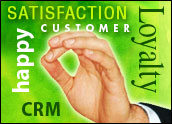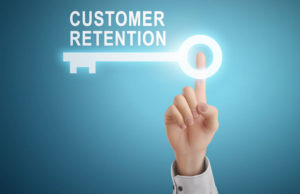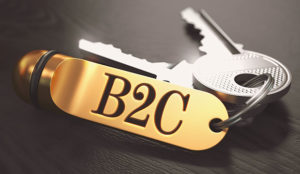
I have always believed that I shouldn’t use this bully pulpit to settle personal scores and that is why the vendor in this story will remain anonymous. But this is such a delicious story about the limits of CRM that I couldn’t resist at least bringing it up.
I bought a PC and printer package about a year ago for business purposes and for a mere US$25 I upgraded from a standard printer to a Swiss Army knife sort of contraption that scans, copies, sends faxes and probably has two other functions that I am completely ignorant of. And it prints in color. It is one of the wonders of the technology age, to me at least, that color printers are so cheap — cheaper than black and white laser printers, if you can find one. Of course the printer vendors are simply using the old razor blade theory of marketing — give away the handle and sell the disposables for high prices.
At any rate, the Swiss Army knife device began running low on ink and asking me if it could call the mother ship for more. Since the device had the computer company’s logo on it, I had no idea where else I could buy ink so I said sure. We went to the mother ship and found a special on “High Capacity” cartridges two black and two color for one low price. I bought. That’s really where this story starts.
Special Delivery
I was dutifully informed of my package’s shipment and its progress via e-mail and in a few days a box landed on my door step containing the ink. It was another triumph for the integrated/global/high-tech/Internet/post industrial economy, until I opened the box. There with a packing slip were the four little ink cartridges looking strangely like an entree in a severely overpriced restaurant. More than that, the part numbers on the packing slip didn’t match the part numbers on the wrappers.
Because I had bought “High Capacity” cartridges I assumed that they would be bigger and contain more ink than the standard cartridges that came with the Swiss Army knife, so, I sent an e-mail to customer service saying all that and saying that there must be a mistake. How do I get the “High Capacity” cartridges, I wanted to know?
My assumption of the definition of “High Capacity” came from two sources. The first is the fact that I own another color printer by a different manufacturer and that when I buy that company’s high capacity cartridges I get something that looks like the super sized version of the standard cartridge. My second source for this definition comes from the fact that I am a native speaker of English — maybe it’s not perfect but it is generally recognizable.
The Wonders of Automation
I got an automated reply acknowledging receipt of my e-mail and promising a real response in 24 hours. Great, I thought — I ‘m not out of ink yet and I’ll just return these when the company realizes its mistake.
A day later I got another e-mail telling me that the part numbers were right and that the sender was “so sorry for this great confusion.” Then it went into CRM mode asking me to fill out a satisfaction survey. I declined and instead responded to the e-mail.
Thinking they misunderstood my original problem as only being about part numbers I wrote, “The cartridges that were sent to me are the standard size for this device. The [company] Web site advertised these cartridges as high capacity and they are not. They have no capacity beyond that of standard components.”
Again I got the auto response and again I waited 24 hours. Then I got e-mail from a different person saying:
- “I understand how confusing it is regarding exactly what the term ‘high yield’ means. I also did not understand what this entailed the first time I saw this term used. Please let me try to explain what this is.
“‘High Yield’ has nothing to do with the size of the cartridge or the amount of ink. (Only 1 size will fit your printer.) ‘High Yield’ means it is a better quality ink which is used. It lasts longer and produces a more defined print.”
But the company’s e-business site says of the “High Capacity Color Print Cartridge”:
- “This color print cartridge offers a great value with a lower costper page than the standard capacity print cartridge. It produces high-resolution printouts with clear images and text. It features microscopic ink-drop size for incredible clarity and detail. The cartridge supports [company’s ink management system] for low ink detection and easy online ordering.”
And of the black cartridge:
- “This black print cartridge offers a great value with a lower cost per page than the standard capacity print cartridge. It features microscopic ink-drop size for incredible clarity and detail. The cartridge supports [company’s ink management system] for low ink detection and easy online ordering.
What’s in a Name?
You might have noticed there is a word change from “High Yield” to “High Capacity” the packing slip uses the former and the Web site uses the latter. I ordered the latter.
So the question for all you calculator toting types is this — if the printer only takes one size of cartridge and if you charge more for the High Capacity cartridges than you charge for “standard capacity” cartridges, then how can you get a “lower cost per page” if you charge more for the cartridge (assuming there is no way to put more ink in the cartridge)?
So to net it out, when in doubt blame the customer. Apparently, I didn’t understand the meaning of “High Capacity” when I ordered or “High Yield” when I complained.
Ok, I give up.
This really isn’t about the money I paid for what I thought I was getting. I know this vendor is using one of the top CRM systems in the world and the system performed beautifully. But this episode simply documents the triumph of process over relationship. For this company, CRM means managing each transaction and checking the customer’s satisfaction at the end. This is exactly why a company’s customer loyalty scores are always lower than the satisfaction score.
For a long time, I have been trying to make the point that CRM is a lot more than buying a lot of products and services from a software company. It’s mostly about your attitude toward and approach to customers. The best CRM system in the world will be useless in the face of organizational ambivalence and bottom line mentality. It’s been a while since I’ve seen such a clear cut case.
Denis Pombriant is a well known thought leader in CRM and the founder and managing principal of the Beagle Research Group, a CRM market research firm and consultancy. Pombriant’s latest white paper, Adding Sales to the Call Center Agenda, summarizes his recent research in the call center industry. In 2003, CRM Magazine named Pombriant one of the most influential executives in the CRM industry. Pombriant is currently working on a book to be published next year. He can be reached at [email protected]























































